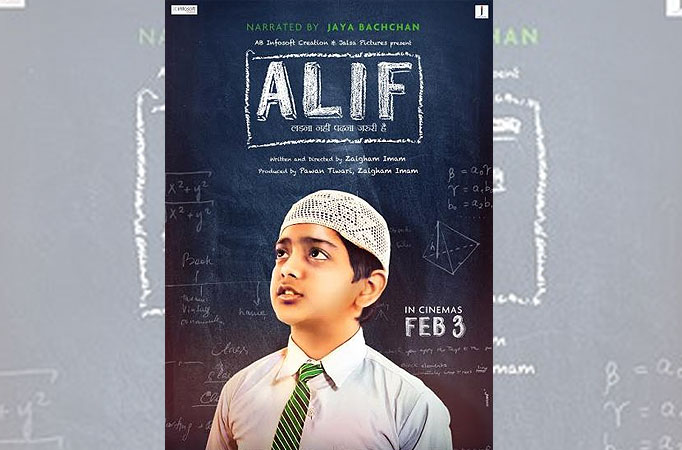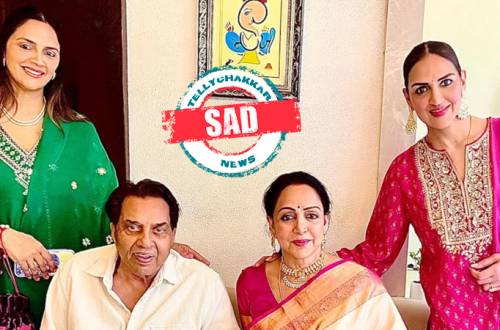
Writer-Director: Zaigham Imam
Cast: Neelima Azeem, Danish Hussain and Saud Mansuri
Rating: *** ˝
Varanasi is a city of the holy waters and unholy bloodshed. The deep divide between the Hindu and Muslims is never crossed. It takes guts for a filmmaker to cross over from one restricted area into another to take a long hard look at a life lived on the fringes of both the communities.
"Alif" addresses itself to the very sensitive and relevant issue of the isolation of the Indian Muslim. It neither resorts to the stereotypes of the ‘Muslim social' nor does it look at the community as persecuted and injured by self-inflicted welters of radicalism.
This small film with big aspirations looks at the economically challenged existence hovering stubbornly at the fringe of self-destruction, trying its utmost to remain beyond the ‘isms' and the cataclysms that threaten to annihilate the community from mainstream existence in our country.
"Alif" is sometimes too eager to pack in an excess of ideas. However, the narrative is not bogged down by its own aspirations. Rather, writer-director Zaigham Imam's fortitude of conviction and sincerity of expression gives the jumpy uneven film a pattern of serene motions even when the characters' motivations and behaviour get choppy and unacceptable.
There are some glaring flaws in the narrative, too glaring to even be mentioned. And some performances are awkward and embarrassing. But what remains with us is the earnestness of a storyteller whose heart bleeds for a community.
"Alif" is the story of a young boy named Ali (played with endearing sincerity by Saud Mansuri) whose father is a hakeem. When aunt Zahara (Neelima Azeem, rousing in her impassioned dramatics) visits Varanasi from Pakistan she wants changes, radical changes in her brother's family.
In a heart-warming moment of family togetherness, the father lying inert on his deathbed is pulled out for a bath in the courtyard. The boy Ali whom Zahara soon gets to dote on must stop going to the madarsa and start attending a proper English school.
No one dares to say no.
It is here that the narrative chooses to get discernibly frank in its dissection of the discrepancy of the educational standards in the traditional madarsa and the conventional schools.
Ali's brutal humiliation in the new environment, his lack of basic schooled knowledge, are depicted in harrowingly broad strokes which, regrettably, don't work in other sections of the film.
A budding rooftop romance between a radical Muslim educationist and the girl next door is nipped in the bud when he confesses he loves only God.
"How can you love God when you can't love someone who is standing in front of you?" she screams. The performances in such sequences are caricatural. But the heart is in the right place.
This thwarted romance and many other plot manoeuvres in this loftily intended melodrama echo M.S. Sathyu's classic "Garam Hawa" on the isolation of the Indian Muslim. It is a tragic commentary on our social order that the situation described by Sathyu three decades ago remains largely unchanged for the community that continues to suffer in isolation.
"Alif" doesn't wallow in self-pitying anger. Although there are some unfortunate attempts to demonise the other community, the characters remain largely compassionate and non-judgmental.
What I took away from "Alif" was the warmth of a closely-knit family and specially the kinship that develops between the little boy and his aunt from Pakistan. Sadly, there isn't enough of this bonding in the plot which runs helter-skelter in pursuit of diverse strands in the cultural and religious contradictions that today threaten to erode the credibility of an entire community.
The film's politics is, at best, unobjectionable. It's such a pleasure to watch Neelima portray the domineering matriarch. She presides over the proceedings in her truncated role like Shaukat Azmi and Farida Jalal in their most memorable films. At one point she scolds a wretchedly mean Hindu teacher for harassing the film's little boy-hero.
"Just because he waved a Pakistani flag on Republic Day you branded him a terrorist?" she asks with an innocence that completely abnegates irony. This innocence of an apolitical entity in an environment of throbbing politics is refreshing.
For all its faults, "Alif" must be seen for its strong message on the importance of formal education for every child, even if it means offending some who would rather have the young imprisoned in ignorance. Light, says the film, is life. For this message alone, "Alif" deserves a round of applause.
(Source: IANS)










Add new comment